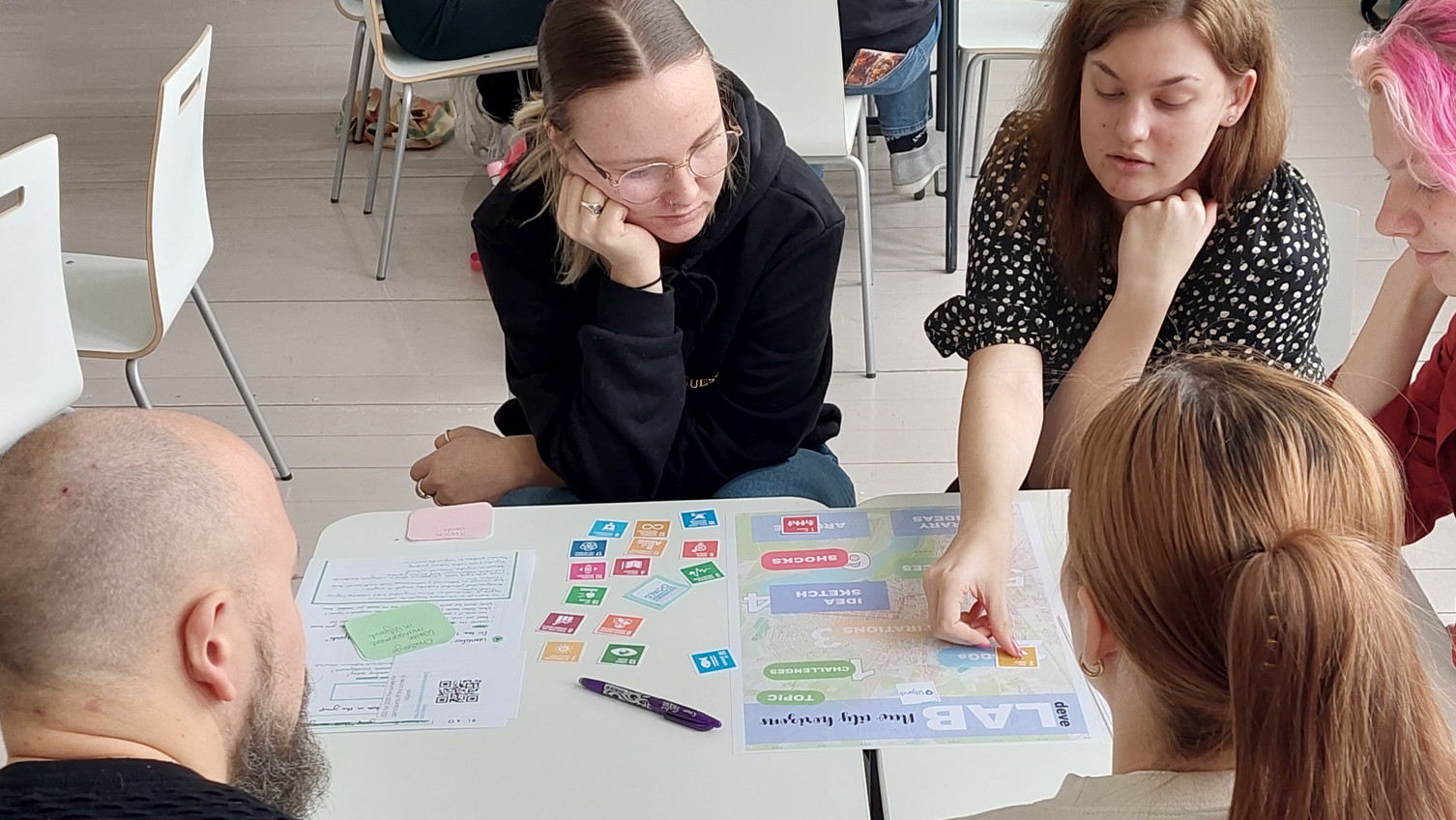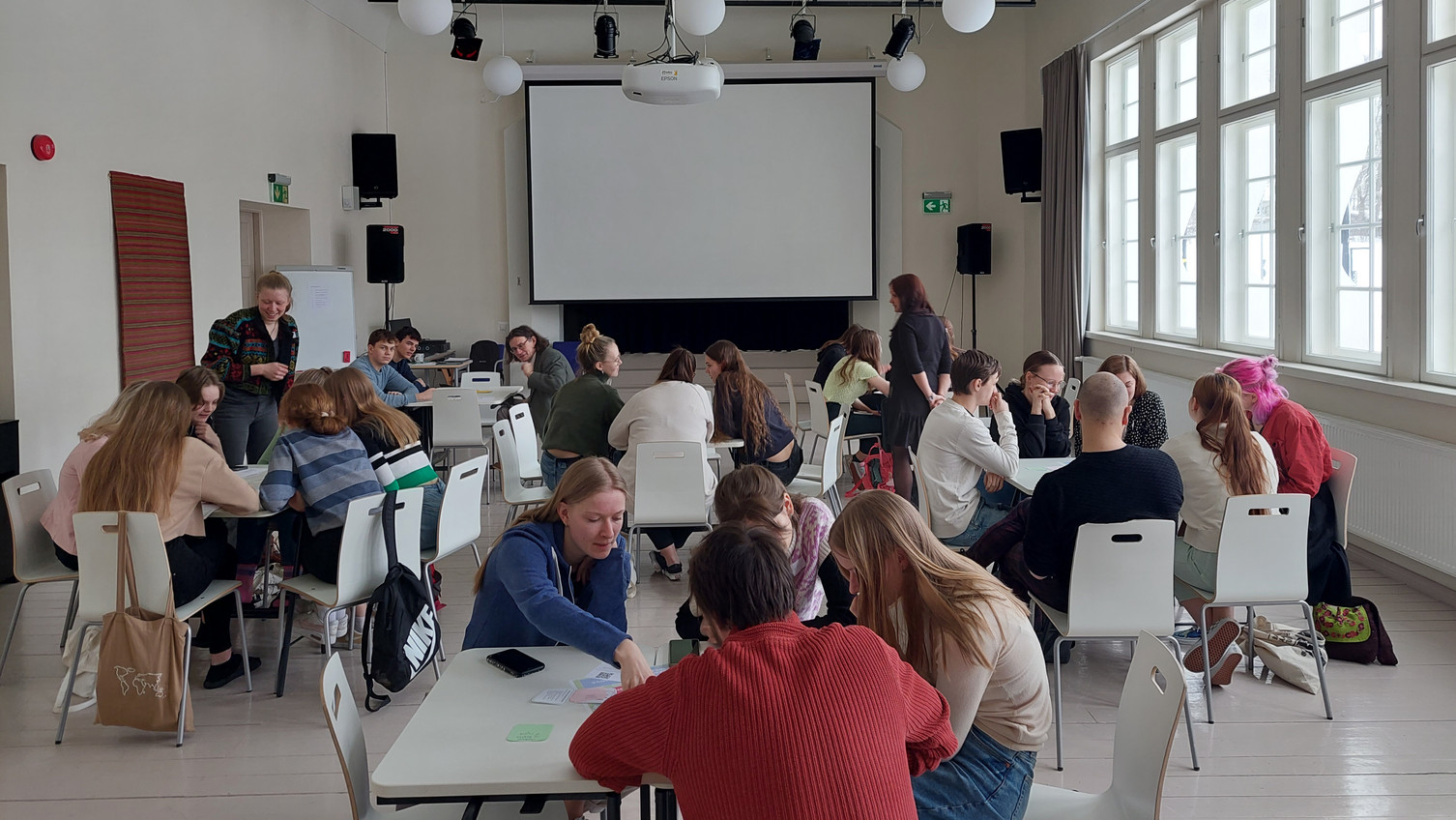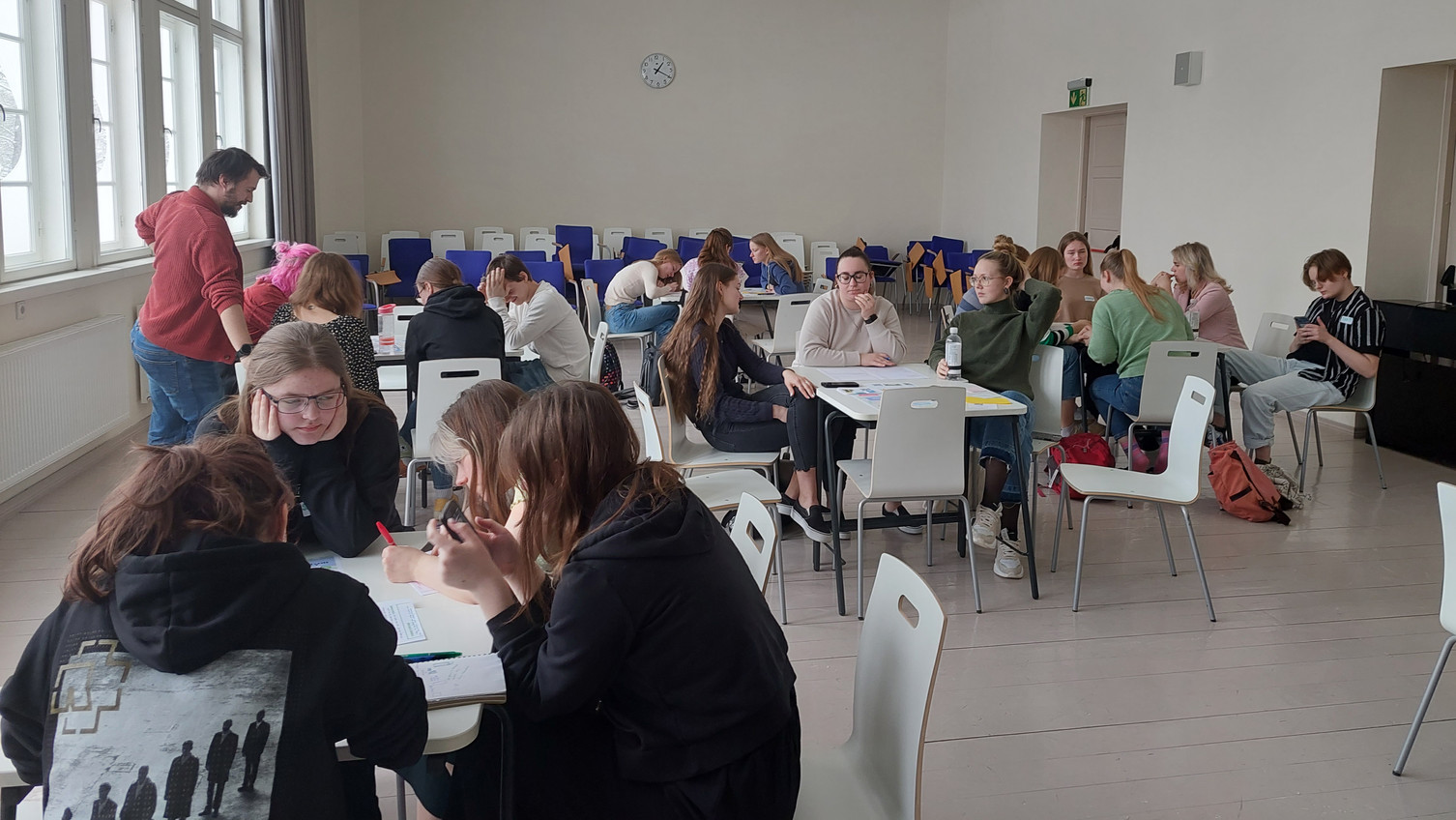Research stay in Estonia: ESD for 2030 project
2023-05-25 Interview with Anne Terhardt about her research stay in Viljandi, Estonia in February/March 2023.
1. Hey, thanks for taking the time to talk to us. Let's start with a little introduction; who are you and what is your connection to the ISDL?
Hey, I'm Anne and I study Global Environmental and Sustainability Studies (major) and Educational Sciences (minor) at Leuphana University Lüneburg. Since February 2023, I have been working as a student assistant for the Institute for Sustainable Development and Learning (ISDL). I am also currently writing my bachelor thesis in the project "ESD for 2030 - Learning for and in resilient and sustainable communities", which focuses on real-world labs as transdisciplinary and transformative learning environments.
2. Interesting! What is the topic of your bachelor thesis?
The bachelor thesis is about strengthening the role of young people to participate in sustainable urban and community development. Specifically, it is about the extent to which young people (here: mainly school students between 16 and 18 years of age) feel empowered and motivated to work for sustainable development in their city/municipality.
3. Exciting. Did you travel to Estonia for research? And what exactly are you doing as part of your research?
Exactly, I was in Viljandi - a small town in the south of Estonia - from 15/02 to 15/03/23. It is a partner city in our ESD project. My research stay was funded by a PROMOS scholarship from the German Academic Exchange Service (DAAD).
Before the trip, I set up a playful workshop concept (deveLAB - New city horizons), which was developed by students of the seminar "The future cities of Europe - beyond Lüneburg 2030+" in the summer semester 2022. I also researched the topics of "real-world labs and transdisciplinary sustainability research" and "youth empowerment" through literature research. I then implemented the workshop concept during my stay in Viljandi with the support of the project partners at Viljandi Gümnaasium. The aim of the workshop was to bring together different actors and to create a framework in which they could jointly develop ideas for interventions for more sustainability in Viljandi. For this, the gamification approach was used; the workshop materials function like a board game. This worked well, in that the participants came up with exciting and realistic ideas through which they can address local sustainability issues. These include, for example, the creation of a community garden at the school, more bicycle parking spaces at central locations or a design project for dustbin to encourage people to separate their rubbish properly.
After the workshop, I interviewed the participants who volunteered for the project. The aim of the interviews was to find out how much the workshop participants felt encouraged to commit themselves to more sustainability in Viljandi, especially in the context of the ongoing real-world experiment. For this purpose, I interviewed them about their motivation, competences and knowledge that they can bring to the project, and about their personal relation to the project ideas and to the topic of sustainability in general. I also asked them what they thought the chances were that their project ideas would become reality.
4. Cool. That sounds like a promising project and it seems that you had a good time in Estonia?
Yes, I definitely had a good time. I met a lot of nice and committed people, both students, teachers and employees of the city administration and especially pupils, who fascinated me with their passion and willpower for the topic of sustainability. I also found it very exciting that the school I worked with is already very committed and has already implemented many projects in cooperation with the city or other institutions in the past. This gave the students the opportunity to become active outside of the school day. Viljandi is also a beautiful small town that offers many cultural events and lots of nature in the immediate surrounding. I would love to come back soon.
During my research stay, I also visited my fellow student, Merle Dreessen in Valmiera, Latvia, during the Eco-school Forum taking place there. That was also super exciting.
5. Now that you are back in Germany, how is your research going and what will happen with the data you collected during your research stay?
I am now analysing the interviews and the workshop results (the participants have written down their ideas and work processes) to what extent the participants are empowered to continue to engage in sustainable development in Viljandi. With the help of the data I also try to find out what could be further optimised in the workshop concept and I want to compile practical tips for implementation that could be useful for future implementations of the workshop concept. These tips will later be integrated into a Handbook for Practitioners, in which the most important learnings from all three project partner municipalities will be compiled and which will provide practical assistance for the implementation of real-world labs.
6. Cool. That means that your research also contributes to the "ESD for 2030" project?
Exactly, that's the plan. I also really hope that the findings of my research will be useful for the further development of the project in Viljandi. It seems, for example, that there are some students in Viljandi who have a very strong interest in the issue of sustainability in their city. Their interest and commitment could be built upon in the future and we could try to encourage the young people even more in their commitment so that they can make a big impact in cooperation with other actors.
If you have any questions, please feel free to contact me at anne.terhardt@stud.leuphana.de.



